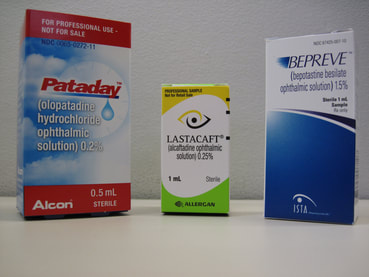Eye Allergies (Allergic Conjunctivitis)
|
Allergic conjunctivitis (often called "eye allergies") are triggered by an immune reaction involving a sensitized individual and an allergen. Simply stated, this means that if you are allergic to a particular substance and then come into contact with it, you experience an allergic reaction. Up to 50 million Americans suffer from the miseries of allergies, with allergic reactions involving the eyes being a common complaint. An allergic reaction that affects the conjunctiva, a clear layer of skin overlying the eyes, is commonly referred to as allergic conjunctivitis.
Conjunctivitis may be caused by a viral or bacterial infection. Symptoms of these can feel similar to allergic conjunctivitis and should be diagnosed by eye doctor. People with allergic conjunctivitis may experience the following symptoms: • A gritty feeling in one or both eyes • Itching or burning sensation in one or both eyes • Excessive tearing • Watery discharge coming from one or both eyes • Swollen eyelids • Pink discoloration to the whites of one or both eyes • Intolerance to contact lens wear, or complaints of contact lens "moving around" |
|
Proper Diagnoses & Treatment

Allergic conjunctivitis is often indistinguishable or often occurs concurrently with other eye disorders such as dry eye syndrome or eye infections. It is important to see your optometrist who will perform a proper examination. With an accurate diagnoses, a treatment plan can be presented, this may include eye drops, oral medication, and other forms of treatment to help with your symptoms.